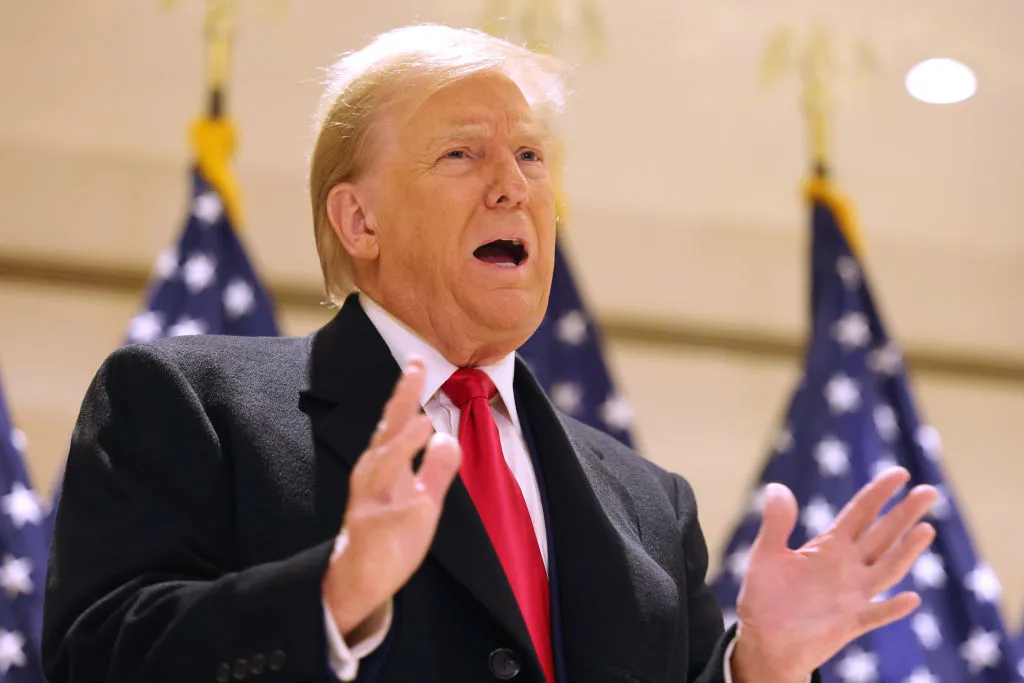If President Trump secures re-election next fall — a prospect growing less likely by the day — it won’t be because of his scintillating ability to staff his own government. On that score, he doesn’t seem to care.
Personnel is the Achilles’ heel of this presidency. Trump sometimes describes the goings-on in the administration as if he were still a bystander in the American power game. His retweet of a Jeffrey Epstein conspiracy theory this weekend is funny, but frustrating: to whom does the Department of Justice report, again?
The personnel issue is partly by design. The president prefers a lean, freewheeling staff, like he had at his personal business, a former senior administration official said. It’s the reason why he’s settled on his most anonymous chief of staff yet, Mick Mulvaney. If official Washington would let him get away with it, he’d have no chief at all.
This refusal to staff an administration along normal lines may be radical. It is more risky. Take the ambassador corps for example. I’m no process freak, but it seems reckless to have no man or woman in San Salvador, or Tegucigalpa, or Tbilisi, where war with Moscow could break out at any point, or Amman, a lynchpin of American Middle East statecraft, or Islamabad, capital of an unstable nuclear power. The latest out is Jon Huntsman, the man in Moscow. The word in Russia is to expect no official replacement at all, at least for some time, according to two people familiar with the matter.
Elsewhere, ideological commitment to the president’s mission offers no guarantee of success — in some instances, it can even be a negative indicator. A curious aspect of this presidency is that Trump shows no real loyalty to those who have been loyal to him. Here, indeed, Trump is like his predecessor: a former Barack Obama official told me that during the 2008-2009 transition, the best metric for predicting if a campaign staffer would get a job was who they worked for. If they came from the ’08 Hillary Clinton campaign, the view was, great, you’re credentialed. If you actually worked for Obama in the early days, you could be some kind of maniac. A similar logic seems to hold for Team Trump: or perhaps it’s just too hard to find true and able loyalists.
As it stands, former enemies have flourished. For instance, the influence of Ted Cruz’s world on this White House is well-established. Frank Gaffney, the iconoclastic think tanker, Ginni Thomas, wife of the Supreme Court justice, and the secretive Mercer family, are all former Cruz backers and all tight with this president. Imagine telling someone in 2016 than there would be near-zero political consequence for ‘Lyin’ Ted’ and his allies. Remarkable.
More surprising has been the continued influence of NeverTrumpers, especially in Mike Pompeo’s State Department. The recent firing of Kiron Skinner, the policy planning director popular among the president’s core supporters in Washington, was seen by some on the vaunted seventh floor as the latest establishment victory under Big Mike, an inevitable presidential contender. The State Department maintains that Skinner was ‘abusive.’ Even her adherents concede bizarre personal behavior.
Those unofficially in Trump’s orbit seem to matter more than the government salary class. With the economy at three percent unemployment and nearing three percent growth, and an approval rating above 40 percent, against all odds, getting through a massive governing program doesn’t seem to matter.
It’s been staring us in the face the whole time: for critical information, POTUS watches ‘the shows,’ he has said. President Trump has a shadow cabinet. He watches them on TV and then talks to them — less reality TV, more TV reality. Sean Hannity, Lou Dobbs, Tucker Carlson — these men shape the president’s thinking far more than any official.
Outsiders on our (or Trump’s) screens thrive, therefore. One figure on the up and up: Peter Thiel. The billionaire Google antagonist is increasingly shaping administration policy, urging a tougher line against Alphabet, Google’s parent company, and the Chinese. Artificial intelligence is the ‘crown jewel’ of Google’s research and development, Thiel told Fox’s Maria Bartiromo on Sunday. The company has repeatedly dealt with China, a society which is defined by ‘civil-military’ fusion, unlike the US. Such elite, corporate collaboration — working with a hostile foreign power over Washington — is ‘unprecedented,’ Thiel argued.
Another figure is on the mend: Steve Bannon, the former White House chief strategist, now mostly rehabilitated in the eyes of the 45th president. Bannon also appeared on Bartiromo’s show Sunday. Bannon’s been freelancing for hard-right prerogatives on the border since mid-July, only returning to Washington for a Monday meeting about Hong Kong. Bannon sounded a more partisan note than Thiel, telling Bartiromo that going after the president’s financial supporters, as Rep. Joaquin Castro did last week, is unacceptable. The always sneaky Bannon presents Trump not as a creature of pure chaos but as an almost Nixonian law and order figure (this is the candidate who resuscitated ‘Silent Majority,’ after all.) ‘You’re seeing now, elected officials, Democrats, that are starting to turn on private citizens that support President Trump,’ Bannon told Bartiromo. ‘This shows you the stability and order that Donald Trump represents, versus the chaos and anarchy of the Radical Left.’
In the dumps: Anthony Scaramucci, the ephemeral Trump associate, who told the press this weekend that the wheels are finally coming off and the Republicans should consider a change at the top of the ticket. Trump responded: ‘Anthony, who would do anything to come back in, should remember the only reason he is on TV, and it’s not for being the Mooch!’
Scoff all you will, the president is paying much more attention to these dynamics than to who his man in Rabat is.






















